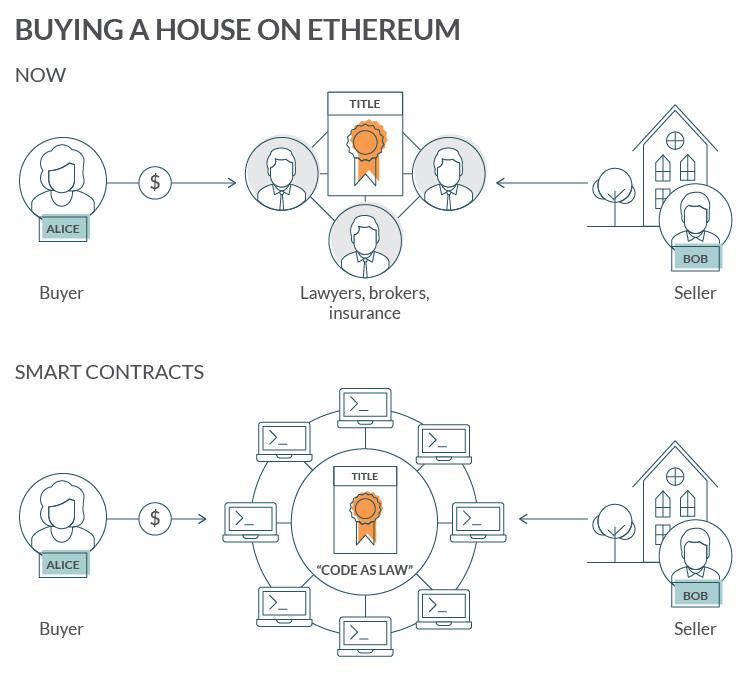In a digital landscape where innovation constantly reshapes the foundational elements of our online interactions, Ethereum has emerged as a beacon of transformative technology. At the heart of this revolution lies a powerful yet often misunderstood feature: smart contracts. These self-executing agreements, coded into the very fabric of the Ethereum blockchain, have the potential to redefine trust, efficiency, and transparency in myriad applications. As businesses and individuals alike seek to navigate the complexities of our interconnected world, understanding the mechanics and implications of smart contracts becomes essential. This article delves into the profound capabilities of Ethereum smart contracts, exploring how they unlock new potentials and create a landscape ripe for innovation, collaboration, and, ultimately, a more decentralized future. Join us as we unpack this digital frontier and illuminate the ways in which smart contracts are not just tools, but the architects of change in the blockchain era.
Exploring the Foundations of Ethereum Smart Contracts
Ethereum smart contracts represent a paradigm shift in how agreements are executed in a digital landscape. At their core, these self-executing contracts leverage the capabilities of blockchain technology to enforce the terms without the need for intermediaries. With transparency, security, and immutability at their disposal, smart contracts facilitate a wide array of applications – from decentralized finance (DeFi) to supply chain management. The versatility of these contracts stems from the Ethereum Virtual Machine (EVM), which provides a robust environment for developers to create and deploy decentralized applications (dApps).
To better understand the impact of smart contracts, consider some key features that elevate their functionality:
- Autonomy: Once deployed, smart contracts operate without external intervention, ensuring that transactions are executed as intended.
- Trust: The immutable nature of blockchain guarantees that once a smart contract is executed, it cannot be altered, fostering trust among parties.
- Cost-efficiency: By eliminating middlemen, smart contracts reduce costs associated with traditional contract enforcement.
To visualize the differences between traditional contracts and Ethereum smart contracts, the following table summarizes their distinctive characteristics:
| Aspect | Traditional Contracts | Ethereum Smart Contracts |
|---|---|---|
| Enforcement | Requires legal intervention | Self-executing upon conditions met |
| Transparency | Limited visibility | Publicly accessible on the blockchain |
| Cost | High transaction fees | Lower costs due to automation |

Harnessing Code for Trust and Transparency in Transactions
The emergence of Ethereum smart contracts has redefined the landscape of transactions by embedding trust directly into the code. Unlike traditional agreements that rely on intermediaries, these self-executing contracts automatically enforce the terms of the deal, paving the way for a more transparent interaction. This transparency stems from the immutable nature of blockchain records, where each transaction is permanently documented and accessible for verification. The result is a reduction in disputes, as all parties involved can monitor the status and integrity of the contract in real-time, minimizing the risks of fraud and miscommunication.
To illustrate the pivotal role of smart contracts in fostering trust, consider the following key benefits:
- Decentralization: Eliminates the need for middlemen, empowering users.
- Automation: Reduces human error by enabling automatic execution of terms.
- Cost-Effectiveness: Lowers transaction fees through streamlined processes.
- Auditability: Provides a transparent trail for every transaction.
| Aspect | Traditional Transactions | Ethereum Smart Contracts |
|---|---|---|
| Intermediaries | Required | None |
| Execution Speed | Varies | Instant |
| Dispute Resolution | Time-consuming | Minimal |
| Cost | Higher | Lower |

Real-World Applications Transforming Industries
Ethereum smart contracts have revolutionized various sectors by enabling automated and transparent transactions without the need for intermediaries. Industries such as finance, real estate, and supply chain management are witnessing a drastic transformation. For instance, in the financial sector, decentralized finance (DeFi) platforms leverage smart contracts to facilitate lending, borrowing, and trading, significantly increasing access to financial services while reducing costs. In real estate, these smart contracts streamline property transactions, allowing buyers and sellers to execute agreements instantly and securely, minimizing the risks associated with traditional methods.
Moreover, industries are increasingly adopting Ethereum smart contracts for enhanced security and efficiency. The supply chain sector benefits from real-time tracking and verification of goods, enabling companies to authenticate product journeys and reduce fraud. Additionally, sectors like healthcare implement smart contracts to safeguard sensitive data and manage patient records while ensuring compliance with regulations. The potential applications are vast, as seen in the following table that showcases some innovative uses across different industries:
| Industry | Application |
|---|---|
| Finance | Decentralized lending platforms |
| Real Estate | Automated property transaction agreements |
| Supply Chain | Real-time product tracking |
| Healthcare | Secure patient record management |
| Gaming | In-game asset ownership and trading |

Best Practices for Developing and Auditing Smart Contracts
When developing Ethereum smart contracts, adhering to certain best practices can mitigate risks and enhance code quality. Prioritize modularity by breaking down contracts into smaller, manageable components that can be tested independently. This makes it easier to debug and upgrade specific functionalities without overhauling the entire system. Additionally, implementing access controls is crucial; ensure only authorized users can execute sensitive functions to prevent unauthorized alterations or attacks. Always keep an eye on gas optimization to minimize transaction costs, as excessive gas usage can deter users and impair functionality.
Auditing smart contracts is an essential step in safeguarding assets and maintaining trust within the network. Utilizing automated tools, such as static analyzers, can initially scan for common vulnerabilities, but supplementing these tools with manual reviews by experienced auditors adds an essential layer of scrutiny. Establish a comprehensive test suite that covers various scenarios, including edge cases and potential attack vectors. It’s beneficial to maintain detailed documentation to guide future audits and updates, ensuring that developers understand the purpose of each code segment and reducing the likelihood of errors during modifications.
Insights and Conclusions
As we close the chapter on our exploration of Ethereum smart contracts, it becomes evident that we are standing at the precipice of a technological renaissance. The potential they unlock is limited only by our imagination and ambition. As individuals and organizations increasingly embrace this innovative framework, we may soon witness a profound transformation in industries ranging from finance to supply chain, and beyond.
The power of Ethereum smart contracts lies in their capacity to enhance trust, improve efficiency, and drive new levels of transparency. They present us with a unique opportunity to reimagine traditional systems and build a future that empowers users and democratizes access. As we navigate this evolving landscape, it is essential to engage critically with the advantages and challenges posed by this technology, fostering a dialogue that encourages responsible innovation.
the journey of unlocking the full potential of Ethereum smart contracts is just beginning. As you move forward, consider the possibilities that await and the roles you can play in shaping a smarter, more interconnected world. Together, we can harness the transformative power of these digital agreements to create a future filled with opportunity and promise.



